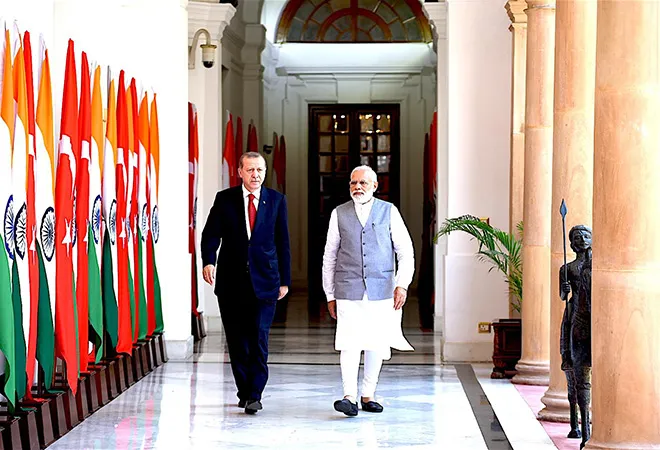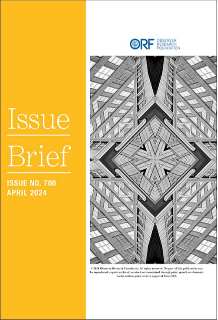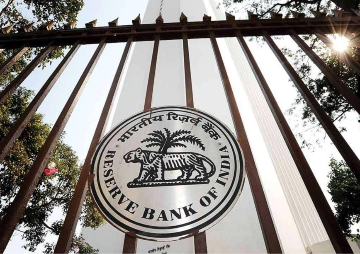What can Prime Minister Narendra Modi learn about democracy from his Turkish counterpart, President Recep Erdoğan?
Nothing, and here is why.
December 2016 was a pivotal moment in Turkish politics, when the country's President, Recep Erdoğan, finalised negotiations on climactic changes to the country's Constitution. These changes are designed to continue taking Turkey, a former role-model Muslim state for democratic values, down a path where Erdogan will be able to hold on to power indefinitely. If successful, this would complete the descent of Turkey into yet another one-man-ruled state, a near-permanent fixture of politics in the Middle East.
What the Turkish President is attempting to orchestrate in his country is the polar opposite of the ideals that the Indian state and its Constitution promote and protect.
The Turkish President is scheduled to visit India in May, during an influx of delegations visiting Delhi from the region. Erdogan today is one of the leading figures representing "strong man" politics, a term that also found its way into Indian public discourse during the 2014 general elections. However, the rise of Erdogan and his wish to re-create and re-establish a "neo-Ottoman" empire, restoring the past glory of Turkey via revisionist policies, autocratic practices and systemic undermining of the democratic process has today diluted perhaps the only proper liberal bastion in the region. The last military attempt against him in 2016 has only enabled the President to double-down on his efforts to gain near-absolute power, and now he looks all set to achieving the same.
Erdogan's campaign to rudder Turkey away from the secular, democratic and reformist vision of the country's founder, Mustafa Kemal Ataturk, was visible in lighter shades during his 11 years as the Prime Minister of the country. As Mayor of Istanbul in the 1990s, Erdoğan had
famously said that democracy was "a vehicle, not a goal". Before becoming the President despite his party that he co-founded, the now ironically named Justice and Development Party (Adalet ve Kalkinma Partisi or AKP), orchestrated significant shifts away from past Islamist parties that were against one of Turkey's biggest national projects, a successful entrance and integration into the European Union. This remains one of the thorniest points in the country's politics.
Erdogan's will to consolidate power got significant boosts over the past few years, first by his arguments that European nations were stalling Turkey's candidacy predominantly because it was a Muslim state, and second in 2007, when his ties with the Turkish Army soured. That year the military staff made a statement on its website that the armed forces were against the then AKP candidate for presidency, former foreign minister Abdullah Gul, labelling him as an Islamist. This made Erdogan double down his politics, realising his popularity and the change in the mood of the Turkish people outside certain liberal bubbles—in 2015 the AKP
won with 49% of the votes under his leadership.
India should remain mindful of how Erdoğan systematically destroyed the institutions of academic and media freedom.
As mentioned earlier, Turkey has a colourful history of coups and alleged plots to overthrow the government. The term "deep state", popularised recently by American public discourse in relation with the "outsider" Donald Trump's accession from a property developer to the most powerful man in the world, actually has its history embedded in Turkish politics. The term "deep state" is derived from "derin devlet", referring to a network of people in the government and bureaucracy with links to organised crime; such a network undermines and undercuts their high-ranking authorities. To begin with, "derin devlet" was initially termed in 1950s Turkey as a "movement" against communism and to protect secular nature of the state. During this period, thousands died in the Turkish derin devlet-organised violence which included "false flag" operations, staged riots, kidnappings, attacks, killings of trade unionists and so on.
The failed 2016 coup attempt against Erdoğan came as a push for him to curtail democracy and dissent in equal measure. As parts of the Turkish armed forces broke ranks on 15 July last year and marched down the streets of Istanbul, even stealing F-16s and taking over the lanes of the country's largest cities, the coup attempt ended in a failure with pro-Erdogan forces restoring order within 48 hours. The fallout, however, was that Erdoğan had further impetus to consolidate power, now armed with a good reason. The President blamed supporters of his main opposition, exiled former ally and friend Fethullah Gülen, for the attempted takeover and went on a months-long campaign to weed out pro-Gülen elements from the Turkish military. Beyond this, Erdogan is now close to implementing constitutional amendments to extend his reign away from the current parliamentary system. These amendments, which are Turkey's transition to a process of simultaneous parliamentary and presidential elections, will allow Erdogan to rule for two successive five years terms post 2019.
The Turkish example serves as a warning on what populist consolidation of power means, and how it does not just arrive for a small period to fix systems. Once installed, it persists.
Erdogan's trip to New Delhi will be heavily focused on the security front, specifically as the fight against the so-called Islamic State (ISIS) becomes a global one. However, it is important to highlight a few points on how to approach this debate with our Turkish counterparts whose response to ISIS has been situated in a somewhat grey area. During the early years of the rise of ISIS, Turkey became a fertile ground not just for recruitment for the terror organization, but a gateway for thousands of foreign fighters making their way into the then newly proclaimed "caliphate" of ISIS. Whether this was facilitated by rampant corruption in the Turkish Army or was indeed a policy design by Ankara, it backfired spectacularly. While Erdogan may have at one point thought a "small" disruption via a militia could create trouble for Turkey's main enemy, the Kurds, it is today embroiled in campaigns fighting the same outfit as the Kurds themselves.
However, security is not the only consideration here. As the world's largest democracy, India should remain mindful of how Erdoğan systematically destroyed the institutions of academic and media freedom. Most newspapers today in Turkey are pro-state; the ones standing against it were suffocated out of business or taken over by pro-Erdogan people. The President imposed fines on businesses that did not support the AKP, and as per reports, strong-armed social media companies such as Facebook and Twitter to share private data. State-owned corporations were encouraged to purchase media outlets and the state-run Turkish Radio and Television Corporation (TRTC) and wire service Anadolu Agency became part of AKP's operations. Since then, Erdogan's government has arrested hundreds of journalists and academics with impunity, many of whom remain behind bars without any charges or trial.
Despite the diplomatic pragmatism that India will no doubt maintain during Erdogan's visit, it should keep in mind that what the Turkish President is attempting to orchestrate in his country is the polar opposite of the ideals that the Indian state and its Constitution promote and protect. Of course, the Turkish example also serves as a case study and warning on what populist consolidation of power means, and how it does not just arrive for a small period to fix systems. Once installed, it persists.
This commentary originally appeared in The Huffington Post.
The views expressed above belong to the author(s). ORF research and analyses now available on Telegram! Click here to access our curated content — blogs, longforms and interviews.




 PREV
PREV



